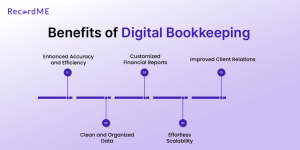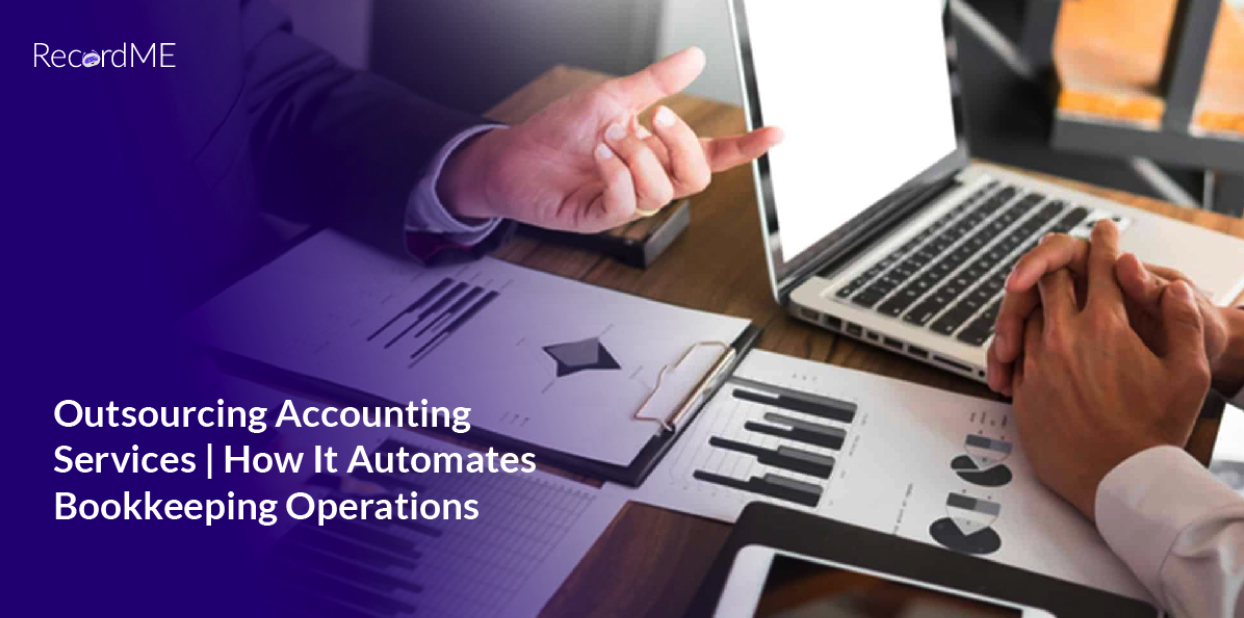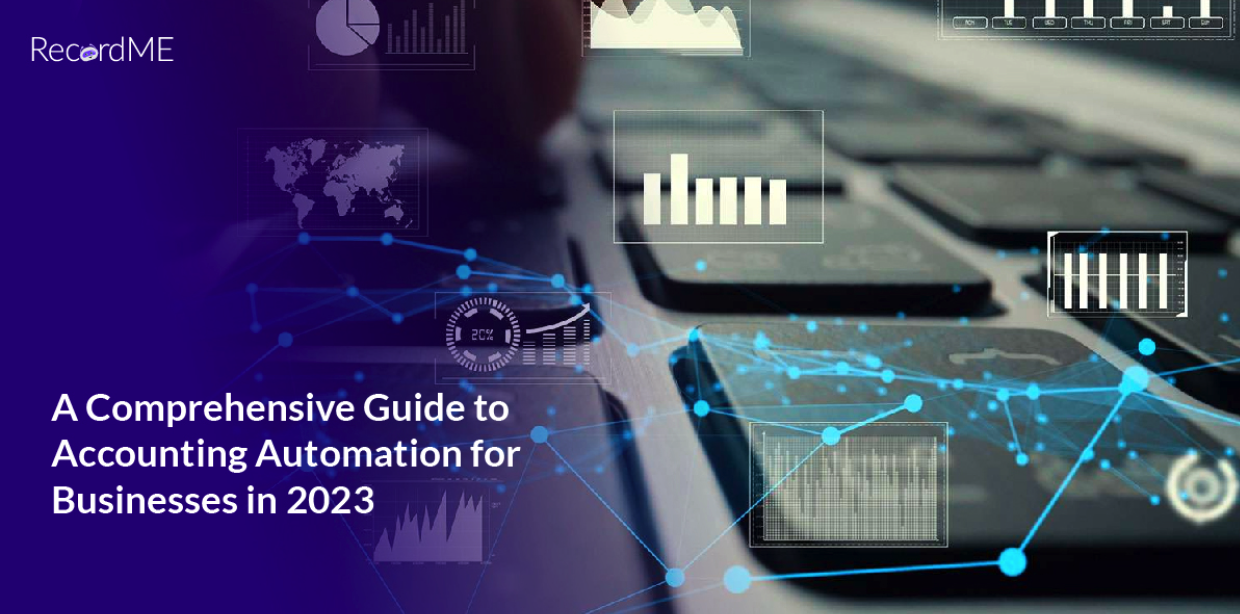Even though technological developments mark significant industrial changes, they are often associated with challenges. Some bookkeepers worry AI technology will replace them, but historical trends indicate that professionals who leverage technology can grow their careers further. Whether it’s ChatGPT, Google’s Bard, or Microsoft’s Copilot, AI is helping people get things done faster and with better accuracy. As with any new technological advancement, opportunities are always accompanied by challenges. Similar is the case with accounting automation, it is evolving how accountants and businesses work, but it comes as a challenge for traditional companies to rethink their strategy. As the need to gather real-time insights and accurate reports becomes increasingly important, business leaders will need to navigate the digital bookkeeping landscape and leverage its capabilities.
The Impact of AI on Bookkeeping
Apart from changes in workflow, one of the most immediate impacts of online bookkeeping services is the role of accounting professionals. Even though multiple softwares already exist that automate certain aspects of finance processes, the introduction of AI is not an iterative update to those programs. Instead, it is the most significant generational leap in financial bookkeeping after Microsoft Excel. However, this does not infer that accountancy jobs will cease to exist. Rather it offers opportunities for professionals to leverage advanced AI capabilities to replace the grunt work with accounting automation.
- According to 22% of accounting firms, AI-based automated bookkeeping solution improve business operations.
- 56% of accountants report increased productivity using technology.
The role accountants and finance professionals play in the bookkeeping sector will simply change. According to industry experts, the most essential part of an accountant’s job is not to balance the finance sheets. Instead, it is to understand the unique perspectives and financial standpoints of the client. Therefore, AI can provide advanced insights and accurate reports on the subject. However, it will still be an expert’s job to interpret these reports and advise business leaders accordingly. It is also worth noting that expert accountants and bookkeepers consult the development of automated bookkeeping services to ensure accurate and practical solutions.
Benefits of Accounting Automation
From reducing processing time to improving accuracy, artificial intelligence and digital bookkeeping have exciting potential for the industry. Instead of fearing the change, business leaders and industry professionals should embrace the advantages of accounting automation. According to 15% of accountants, digitization is one of the primary factors behind the growth of the accounting industry. In 2020, the global market for online bookkeeping solutions stood at $11.9 billion. It is expected to grow at a CAGR of 19.6% by 2023, reaching $70.2 billion. Here are some key benefits of accounting automation that drive its growth:

AI Replaces Repetition
Typically, large corporations have an in-house accounting team. Since most small and medium business enterprises cannot afford the resources, they outsource financial bookkeeping to service providers. In either case, accountants are responsible for data collection, cleaning, and report generation. This manual process not only burdens the professionals but also consumes clients’ time and monetary resources. The error rate in manual processes is even more worrisome, which can result in hefty fines and reputational damages. AI is ideal for replacing mundane tasks, such as data collection and maintenance. While accounting automation alone can handle the grunt work, AI adds value by extracting data from handwritten documents as well. It allows accountants to focus on high-value tasks, like developing financial strategies and evaluating business decisions.
Cloud Solutions Enhance Accessibility and Security
In 2021, 58% of enterprises were using cloud-based digital bookkeeping solutions to provide robust software to their resources. Compared to on-site software, cloud solutions are readily accessible to accountants from anywhere in the world. Moreover, even if multiple people work on the same project, cloud technology ensures data integrity and security. Due to the rising prevalence of user-friendly and secure software, accounting firms report that client requirements are getting more complex. Business leaders need to implement online bookkeeping services to cater to their needs. According to a Microsoft report, 79% of business leaders in finance believe it is a need of the hour to innovate business strategies.
Read More: cloud bookkeeping.
Get Real-Time Insights and Continuous Monitoring
For most accounting professionals and firms, month-end close is challenging and hectic. Even though it is a crucial process in finance, accounting teams tend to delay it, which causes severe backlog issues at the end of the cycle. Lack of coordination, manual data entry, and disorganization are the culprits behind this problematic issue. Accounting automation can provide relief by optimizing the accounting processes and handling the grunt work. AI-powered features enable these solutions to capture data accurately. Consequently, as the data collection becomes efficient, the system can extract timely insights. Thus, providing continuous monitoring of client and company financials.
RecordMe – Powering the AI Future
Reducing the time it takes to optimize accounting processes and minimizing the burden on the team requires robust accounting automation software. RecordMe integrates with existing accounting software to increase your accounting efficiency multiple folds. Whether automated data entry or customized financial reports, RecordMe’s AI-powered financial bot provides unparalleled efficiency across the board.






